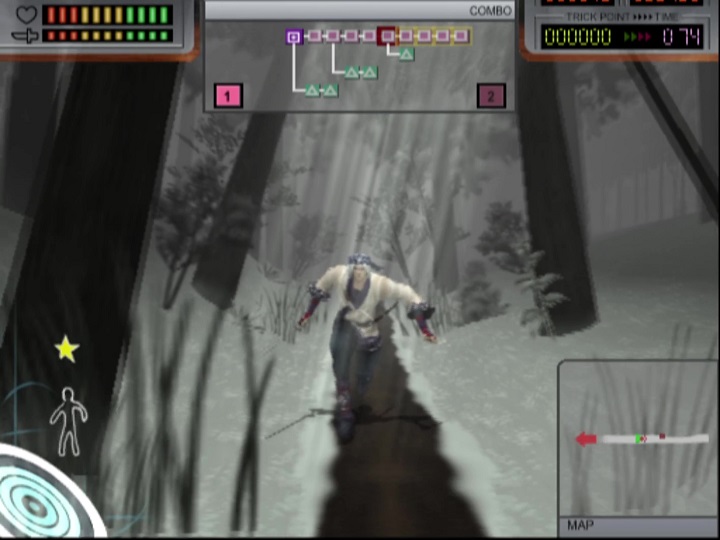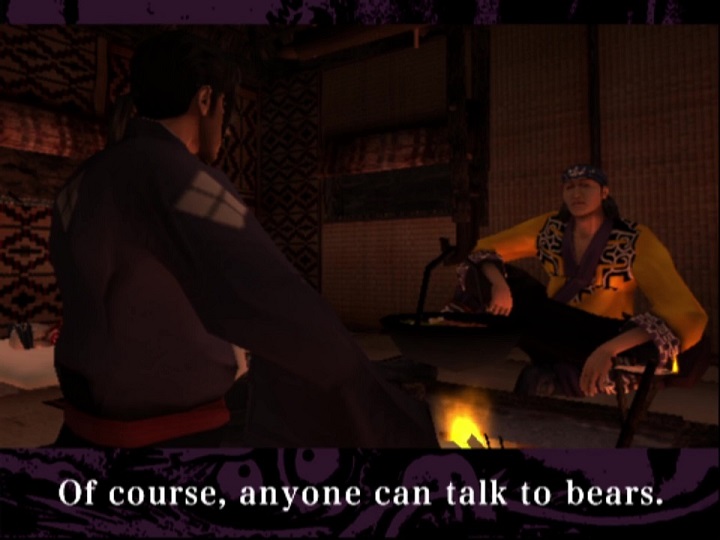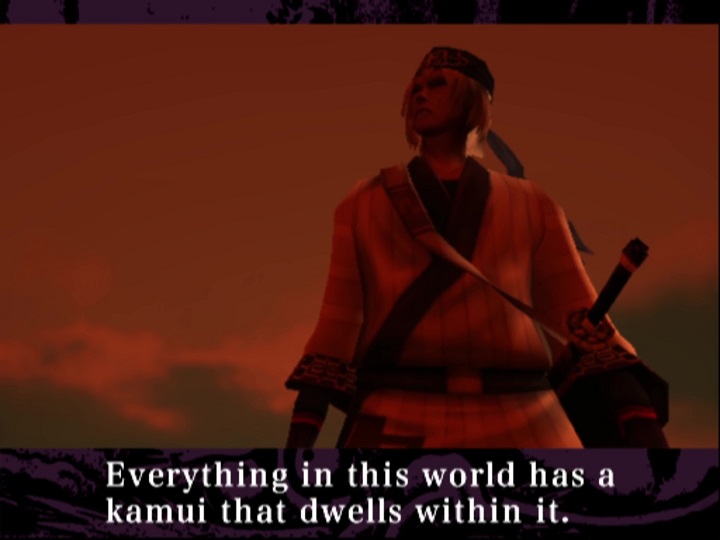
In the second Mugen chapter, “Quick as Lightning: Watch for the Witch,” Worso introduces the prophecy that three people matching Jin, Mugen, and Fuu’s description will appear as “saviors” after he himself defeats a “demon.” “Self-Contradiction: Word of Warning” elaborates that the legend involves Worso becoming an “oni,” a point I will return to later. However, Jin and Mugen spend the story as the Tsurumaki clan’s oblivious patsies. Worso is a player character in a proactive role, defeating the main villain entirely on his own while the player is stuck with joke final bosses in the Jin and Mugen storylines. In these ways, it may avoid becoming the Japanese equivalent of a white savior narrative.
***

The second Jin chapter, “Once in a Lifetime: Close Crows,” introduces kamuy to the plot. It features Nochiyu finding a bear attacking Jin and peacefully talking the animal down. Ranke, Nochiyu’s caretaker, explains that “anyone” can talk to a bear because a the animal has a kamuy. He tells Jin that, in her unconscious, Nochiyu is always talking to “[a]nything that has a Kamui, a spirit.” She later demonstrates the ability to temporarily subdue an inferno by speaking to its kamuy. Clearly, kamuy are definitely, literally real in this setting. The Ainu characters regard kamuy as essential and sacred but also part of everyday life. Kamuy are not mentioned again for the duration of the Jin or Mugen stories until the last chapter, “A Fierce Battle: The End for End,” which has the same title for both characters.
Worso’s story features much more about kamui, with the Tsurumaki characters repeatedly referring to them, venerating them, and indicating their ritual importance. “Everything in this world has a kamui that dwells within it. Everything in this world is a gift from the kamui.”

While he wants to regain the land of his ancestors, “All Things in Nature: Walk in the Woods” introduces Worso’s more immediate motivation: a concern with ritual. Three weeks prior to the opening level, after the Matsumae betrayed and killed his father, “the vital role of conducting the opunire, the ceremony for returning the souls of bears” descends to him. The opunire is an Ainu ceremony performed for the kamuy of bears killed in hunts (Utagawa 257).